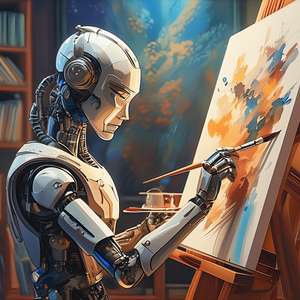
Navigating the Future: The Harsh Reality of Success in Software Engineering Amidst AI Advancements
AI has become a game-changer across various industries, with software engineering at the forefront of this revolution. The integration of AI into software development promises unprecedented efficiency, automation, and innovation. However, for aspiring software engineers, the evolving landscape presents both opportunities and formidable challenges. In this blog post, we’ll explore the current state of software engineering, the impact of AI, and why achieving success in this field is becoming increasingly difficult and unlikely for many.
The Current State of Software Engineering
Software engineering has always been a dynamic and competitive field. Traditionally, it has required a combination of strong technical skills, problem-solving abilities, and continuous learning to keep up with rapidly changing technologies. The advent of AI has further complicated this landscape. AI technologies such as machine learning, natural language processing, and automation tools are not only changing how software is developed but also reshaping the skills and roles required in the industry.
The Impact of AI on Software Engineering
AI's influence on software engineering is multifaceted:
- Automation of Routine Tasks: AI-driven tools can automate many routine coding tasks, such as code generation, bug fixing, and testing. While this increases efficiency, it simultaneously diminishes the need for traditional coding skills, making many entry-level positions obsolete.
- Enhanced Development Tools: AI-powered Integrated Development Environments (IDEs) and code assistants can significantly boost productivity, allowing developers to focus on more complex problems. However, this also means that the bar for entry-level positions is raised as basic coding tasks become automated.
- Evolving Skill Sets: The rise of AI necessitates a shift in skill sets. Software engineers now need to be proficient in AI and machine learning concepts, data analysis, and interdisciplinary knowledge. This additional layer of complexity makes the learning curve steeper and the competition fiercer.
The Steep Path to Success
Given these changes, the path to success in software engineering is becoming increasingly arduous. Here are some of the key challenges:
- Intense Competition: With AI automating many entry-level tasks, the competition for the remaining positions is cutthroat. Aspiring software engineers must now demonstrate advanced skills and a deeper understanding of AI technologies, making it harder to stand out.
- Constantly Evolving Technologies: The pace of technological advancement means that software engineers must continuously learn and adapt. Keeping up with new tools, languages, and frameworks is more demanding than ever, and falling behind even slightly can render one's skills obsolete.
- Higher Expectations: Employers now expect software engineers to not only be proficient in traditional programming but also to have a grasp of AI, machine learning, and data science. This increases the burden on individuals to acquire a broad and deep skill set, making it increasingly difficult to meet job requirements.
- Economic Factors: The automation of software development tasks can lead to a reduction in the number of available jobs. Companies may need fewer developers as AI systems take over more aspects of the development process, leading to a brutal job market with fewer opportunities.
The Unlikelihood of Success
In conclusion, while AI presents exciting opportunities for innovation and efficiency in software engineering, it also makes the field more challenging and unforgiving. The automation of routine tasks, the need for new skill sets, and the constantly evolving technological landscape create significant barriers to entry and success. Aspiring software engineers must be prepared for a demanding and uphill journey, requiring continuous learning, adaptability, and a willingness to embrace new technologies.
The unlikelihood of success in this environment cannot be understated. Only those who are truly passionate, dedicated, and willing to invest heavily in their education and skills will find a way to thrive. For many, the dream of a successful career in software engineering may remain just that—a dream. As AI continues to evolve, the industry will need to find a balance that allows for human ingenuity and creativity to coexist with automated systems, ensuring that there is still a place for talented engineers in the future.





